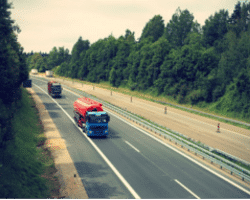Another new market driver is rapidly taking the main seat. The U.N.’s latest report this year on climate change declared with 90% certainty that mankind is cooking the planet. Acting now would cost 0.12% of the annual global GDP – while in contrast, the damage of not acting now could cost as much as 20% of annual global GDP. National regulations and environmental awareness including sustainability has become a market driver, powered by customers and shareholders asking for change. They are now demanding sustainable, environmentally sound, fair trade practices, while expecting no less financial gains than before, for their trade and investment.
Product safety & quality, fair trade strategies and environmental protection have merged to create a synergistic demand for ‘Green’ business practices adding complexity to global trade. Global warming, food and product recalls, energy costs and consumer demand for fair trade practices are driving global importers to actively manage the sourcing of their products, requiring closer scrutiny and control. For example, Daimler (Chrysler) maintains a database on more than 800,000 products and components it uses, containing information on multiple environmental attributes of the products. Importers and brand owners are responding, pressuring suppliers, exporters and logistics service providers to develop eco-friendly ‘Green’ business processes that ensure product traceability, monitor in-transit custody, reduce carbon emissions and are regulatory compliant. Exporters, suppliers and logistics services providers are faced with developing and deploying fulfilment practices that enable importers to verify trade fulfilment transactions, quickly respond to product alerts, meet market demand for ‘Green” practices, and assure compliance. Researchers and studies have found that price and quality being equal, consumers prefer products and companies that are ecological, ethical and socially responsible. In response, many of the top brand owners embrace the green initiative actively as a mean to protect and enhance their brand images. Dow’s supply chain staff worked with the manufacturing side of the company to identify ways to reduce the inventory of one highly toxic material, improving the overall safety of the operation and also cutting inventory by $160,000. Tesco has introduced a dedicated train to move stock between the distribution centers in Daventry and Livingston. One train can carry the same amount of stock as 28 lorries, which saves over 14,560 lorry journeys every year. That is over five million fewer lorry miles and 180,000 freight tones off the road each year. Timberland has already started including a “nutrition label” with its footwear, detailing the footprint of the shoes production including the type of energy used, the renewable portion, and the factory’s labor record.
The market leaders have chosen to respond to the call of green awakening by seeking a new balance between profitability and sustainability.



